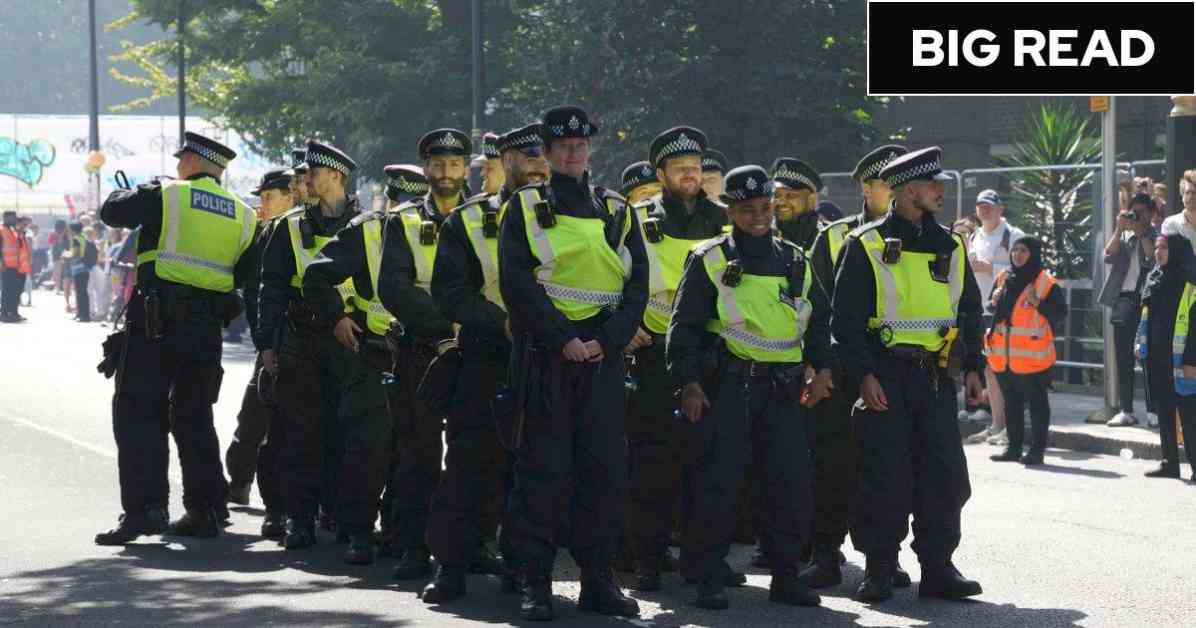**The Challenges Faced by New Police Recruits Amidst Racism, Violence, and Political Bias**
In the wake of this summer’s riots, new police recruits are facing an array of challenges that test their mettle and resolve. From combating racism to navigating through violent protests and dealing with claims of political bias, these recruits are entering the force at a time when policing in the UK is under intense scrutiny.
**The Landscape of Policing in the UK**
The landscape of policing in the UK is fraught with challenges, with several forces being placed in special measures due to their poor performance in solving crimes. The reputation of individual officers has been tarnished by a constant stream of negative headlines, further exacerbating the public’s perception of law enforcement.
Frontline officers find themselves at the center of the UK’s “culture wars”, especially when faced with politically-charged incidents or protests. The pressure is particularly acute for new recruits, as more than a third of all police officers in England and Wales currently have less than five years of service due to a decade of cuts to officer numbers followed by a rapid recruitment drive.
**The Recruitment of New Officers**
Many police forces still have numerous vacancies, prompting a cohort of university graduates to undergo training to join the country’s largest force, the London Metropolitan Police, through programs like Police Now. This initiative aims to find better and more diverse candidates to bolster the ranks of law enforcement.
Chief executive Kurtis Christoforides, along with two recruits, shed light on the challenges faced by new officers as they navigate through a tumultuous environment fraught with uncertainty and danger.
**Facing Racism and Prejudice**
Samuel, a 27-year-old recruit originally from Zimbabwe, shared his experiences of racism and prejudice growing up, including encounters with the police. Despite these challenges, Samuel is determined to make a difference and bring about positive change within the force.
He acknowledged the uphill battle of combatting racism within the police and society at large but remains hopeful that through education and understanding, progress can be made. Samuel highlighted the importance of representation and diversity within the police force to address systemic issues and foster a more inclusive environment.
**Navigating Through Turbulent Times**
Anna, a 23-year-old graduate enrolled in the Police Now scheme, expressed her concerns for safety amidst the backdrop of riots and violence. Despite the risks involved, she is determined to make a difference and contribute to the greater good through her service as a police officer.
The challenges faced by new recruits extend beyond the physical dangers of the job, encompassing the emotional toll of public scrutiny and societal expectations. The need for better public understanding of the complexities of policing was emphasized by Mr. Christoforides, who underscored the importance of recruiting diverse and empathetic individuals to meet the demands of modern law enforcement.
**The Impact of Misinformation and Social Media**
The prevalence of misinformation and the rapid dissemination of false narratives through social media have exacerbated tensions and fueled unrest within communities. Inaccurate information has led to riots and rallies, highlighting the power of words and the need for responsible communication in a digital age.
Samuel reflected on the ease with which misinformation can spread and its detrimental impact on social cohesion. He emphasized the importance of building trustful relationships and fostering understanding to combat underlying racial biases and prejudices.
**Striving for Change and Progress**
Despite the challenges and obstacles faced by new police recruits, there remains a sense of optimism and determination to effect positive change within the force. Through education, empathy, and a commitment to diversity, these officers are striving to overcome adversity and build a more inclusive and equitable society.
As the landscape of policing continues to evolve, new recruits are poised to lead the way in reshaping law enforcement practices and promoting community engagement. By confronting racism, violence, and political bias head-on, these officers are setting a precedent for a more just and compassionate approach to policing in the UK.













